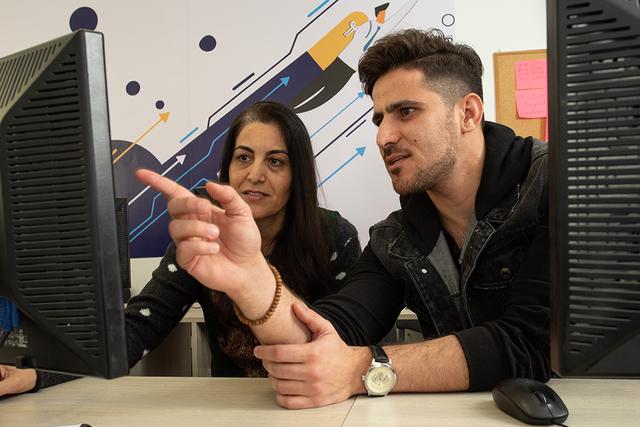Join us on Thursday, May 5, 2022 at 10:00am EDT for a special Twitter Spaces conversation with grantee Karen Hao and reporting partners Heidi Swart, Nadine Freischlad, and Andrea Paola Hernández on their groundbreaking project AI Colonialism, a four-part series on the uneven impacts of AI technologies through the eyes of people experiencing them around the world. Recently published in MIT Technology Review, the series reveals how AI is impoverishing the communities and countries that don’t have a say in its development—the same communities and countries already impoverished by former colonial empires.
Much of the public discourse examining AI development today has centered on the U.S.: in particular, on how Silicon Valley’s profit motives have driven AI research and its repercussions. This account misses a far more global story.
Silicon Valley may still be where most AI algorithms are developed—but the data those algorithms are trained on is being gathered in another country, labeled in a third, and used to develop models deployed in a fourth.
AI Colonialism investigates these harms across South Africa, Venezuela, Indonesia, and New Zealand, and also suggests how AI could be so much more—a way for the historically dispossessed to reassert their culture, their voice, and their right to determine their own future.
Hao, Swart, Freischlad, and Hernández will be joined by senior editor and manager of the Pulitzer Center’s AI Accountability Network, Boyoung Lim. They will discuss the findings from their reporting, and highlight how collaboration can support stronger cross-border investigations.
Visit this link to get a reminder to join us live on Twitter Spaces on Thursday. We hope you’ll join us!
—
* Karen Hao is the senior AI editor at MIT Technology Review, covering the field’s cutting-edge research and its impacts on society. She is also an MIT Knight Science Journalism fellow and a Harvard Technology and Public Purpose non-residential fellow. Her work is regularly taught in universities and cited in government reports and by Congress.
In 2019, her weekly newsletter, The Algorithm, was nominated for The Webby Awards. In 2020, she won a Front Page Award for co-producing the podcast In Machines We Trust.
Prior to Tech Review, she was a tech reporter and data scientist at Quartz. She received her bachelor's in mechanical engineering and minored in energy studies at MIT.
* Heidi Swart is a South African freelance investigative journalist and contributor to MIT Technology Review. She writes about espionage, security, surveillance, and data privacy issues in both the public and private spheres. She's written extensively about illegal government surveillance, interception technologies, cyberspying and cybersecurity, risks to critical communications infrastructure, social media monitoring, data mining, video surveillance, artificial intelligence in surveillance, biometrics, and the impact of the covid-19 pandemic on surveillance practices.
* Andrea Paola Hernández is a freelance journalist from Venezuela who covers gender, race, LGBTIQ+, human rights, and their intersection with tech. Her work has appeared in The Guardian, The New Humanitarian, and Global Voices.
* Nadine Freischlad is an Indonesia-based journalist with an interest in stories at the intersection of technology, business, and society. She chronicled the rapid rise of ride-hailing platforms across Southeast Asia, and covered the impact of digital disruption on various industries like banking and retail.
Freischlad's byline has appeared in Tech in Asia, South China Morning Post, VICE, among other media outlets. She’s currently Southeast Asia Deputy Editor at The Ken.
* Boyoung Lim is a senior editor and AI Network manager at the Pulitzer Center. She formerly worked as a reporter at the Korea Center for Investigative Journalism (KCIJ) - Newstapa. She is a member of the International Consortium of Investigative Journalists (ICIJ).
Before becoming a journalist, she worked as a police officer with a focus on cybercrime. She graduated from the Korean National Police University majoring in criminal investigation and holds a master's degree in international studies from Seoul National University. She quit policing over an order to translate a letter denying the police's responsibility on Baek Nam-Gi, who later died after being hit by a police water cannon.
Since starting her journalism career in her native South Korea, she has covered human rights violations, illicit financial flows, tax injustice, the medical device industry, and others. An international investigation of pseudo-scientific publications led by Norddeutscher Rundfunk (NDR), in which she took part, won several domestic journalism awards.






